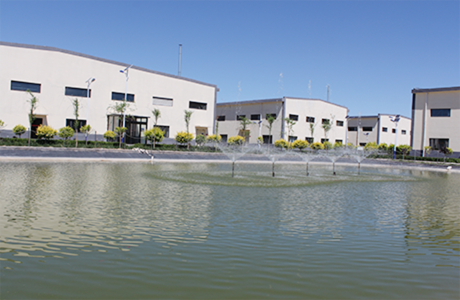- Afrikaans
- Albanian
- Amharic
- Arabic
- Armenian
- Azerbaijani
- Basque
- Belarusian
- Bengali
- Bosnian
- Bulgarian
- Catalan
- Cebuano
- Corsican
- Croatian
- Czech
- Danish
- Dutch
- English
- Esperanto
- Estonian
- Finnish
- French
- Frisian
- Galician
- Georgian
- German
- Greek
- Gujarati
- Haitian Creole
- hausa
- hawaiian
- Hebrew
- Hindi
- Miao
- Hungarian
- Icelandic
- igbo
- Indonesian
- irish
- Italian
- Japanese
- Javanese
- Kannada
- kazakh
- Khmer
- Rwandese
- Korean
- Kurdish
- Kyrgyz
- Lao
- Latin
- Latvian
- Lithuanian
- Luxembourgish
- Macedonian
- Malgashi
- Malay
- Malayalam
- Maltese
- Maori
- Marathi
- Mongolian
- Myanmar
- Nepali
- Norwegian
- Norwegian
- Occitan
- Pashto
- Persian
- Polish
- Portuguese
- Punjabi
- Romanian
- Russian
- Samoan
- Scottish Gaelic
- Serbian
- Sesotho
- Shona
- Sindhi
- Sinhala
- Slovak
- Slovenian
- Somali
- Spanish
- Sundanese
- Swahili
- Swedish
- Tagalog
- Tajik
- Tamil
- Tatar
- Telugu
- Thai
- Turkish
- Turkmen
- Ukrainian
- Urdu
- Uighur
- Uzbek
- Vietnamese
- Welsh
- Bantu
- Yiddish
- Yoruba
- Zulu
Dec . 13, 2024 20:14 Back to list
multivitamin bolus for cattle
The Role of Multivitamin Boluses in Cattle Management
Cattle farming is a complex operation that requires attention to various factors affecting livestock health and productivity. One critical aspect of cattle husbandry is the nutritional needs of the animals. A balanced diet is essential for optimal growth, reproduction, and overall health. However, in many cases, pasture and feed may not provide adequate levels of essential vitamins and minerals. This gap in nutrition often leads to the supplementation of cattle diets, where multivitamin boluses have emerged as a practical solution.
Understanding Multivitamin Boluses
Multivitamin boluses are solid dosage forms designed to deliver essential vitamins and minerals to cattle in a single administration. Typically administered orally, these boluses dissolve slowly in the rumen, allowing for a sustained release of nutrients over time. This slow release is crucial, as it not only helps prevent vitamin and mineral deficiencies but also aids in overall metabolic functions.
The composition of multivitamin boluses can vary significantly depending on the targeted health issues and the specific nutritional requirements of the herd. Common vitamins found in these boluses include A, D, E, and several B vitamins, while important minerals may include calcium, phosphorus, magnesium, and trace minerals like zinc, selenium, and copper.
Benefits of Multivitamin Boluses
1. Enhanced Nutritional Intake Cattle, especially those grazing on mineral-deficient pastures, may struggle to consume adequate nutrients. Multivitamin boluses help fill these gaps, ensuring cattle receive vital micronutrients that are essential for growth, reproduction, and overall performance.
2. Improved Reproductive Performance Vitamins and minerals play a significant role in reproductive health. Deficiencies can lead to issues like poor conception rates, irregular heat cycles, and complications during calving. Supplementing with multivitamin boluses can enhance fertility and lead to healthier calf outcomes.
3. Boosted Immunity Vitamins A, C, and E, along with trace minerals such as selenium, are known to bolster the immune system. An improved immune response can lead to lower incidences of infections and diseases, resulting in reduced veterinary costs and enhanced productivity.
4. Stress Management Stressors such as transportation, environmental changes, or weaning can negatively impact cattle health. Supplementation with multivitamin boluses can help mitigate stress-related issues by providing the necessary nutrients to support metabolic functions and overall resilience.
multivitamin bolus for cattle

5. Ease of Administration Unlike traditional injections or daily supplements, multivitamin boluses offer a convenient, singular method of delivering essential nutrients. This ease of use can result in better compliance from farm workers and less stress on the animals.
Implementation and Best Practices
When implementing multivitamin boluses into a cattle nutrition program, several factors should be considered
1. Assessment of Nutritional Needs Conducting a thorough analysis of the herd's diet, forage quality, and mineral availability is essential. Consultation with a veterinarian or animal nutritionist can aid in identifying specific deficiencies.
2. Choosing the Right Product Not all boluses are created equal. It’s important to select a product formulated for the specific needs of your cattle. Look for boluses that are well-researched and have proven efficacy.
3. Monitoring and Evaluation After administering multivitamin boluses, continuous assessment of cattle health and performance is necessary. Adjusting feeding regimes based on observations and feedback can lead to improved outcomes.
4. Using in Combination with Good Management Practices Multivitamin boluses should not be viewed as standalone solutions. They must be integrated into a holistic cattle management program that includes proper feeding, housing, and veterinary care.
Conclusion
Multivitamin boluses for cattle represent an effective approach to addressing nutritional deficiencies and promoting animal health. By ensuring that cattle receive the necessary vitamins and minerals, farmers can enhance productivity, reproductive performance, and overall herd health. As the industry continues to evolve, incorporating innovative supplementation methods like multivitamin boluses will be key in meeting the demands of modern cattle farming.
-
Guide to Oxytetracycline Injection
NewsMar.27,2025
-
Guide to Colistin Sulphate
NewsMar.27,2025
-
Gentamicin Sulfate: Uses, Price, And Key Information
NewsMar.27,2025
-
Enrofloxacin Injection: Uses, Price, And Supplier Information
NewsMar.27,2025
-
Dexamethasone Sodium Phosphate Injection: Uses, Price, And Key Information
NewsMar.27,2025
-
Albendazole Tablet: Uses, Dosage, Cost, And Key Information
NewsMar.27,2025













